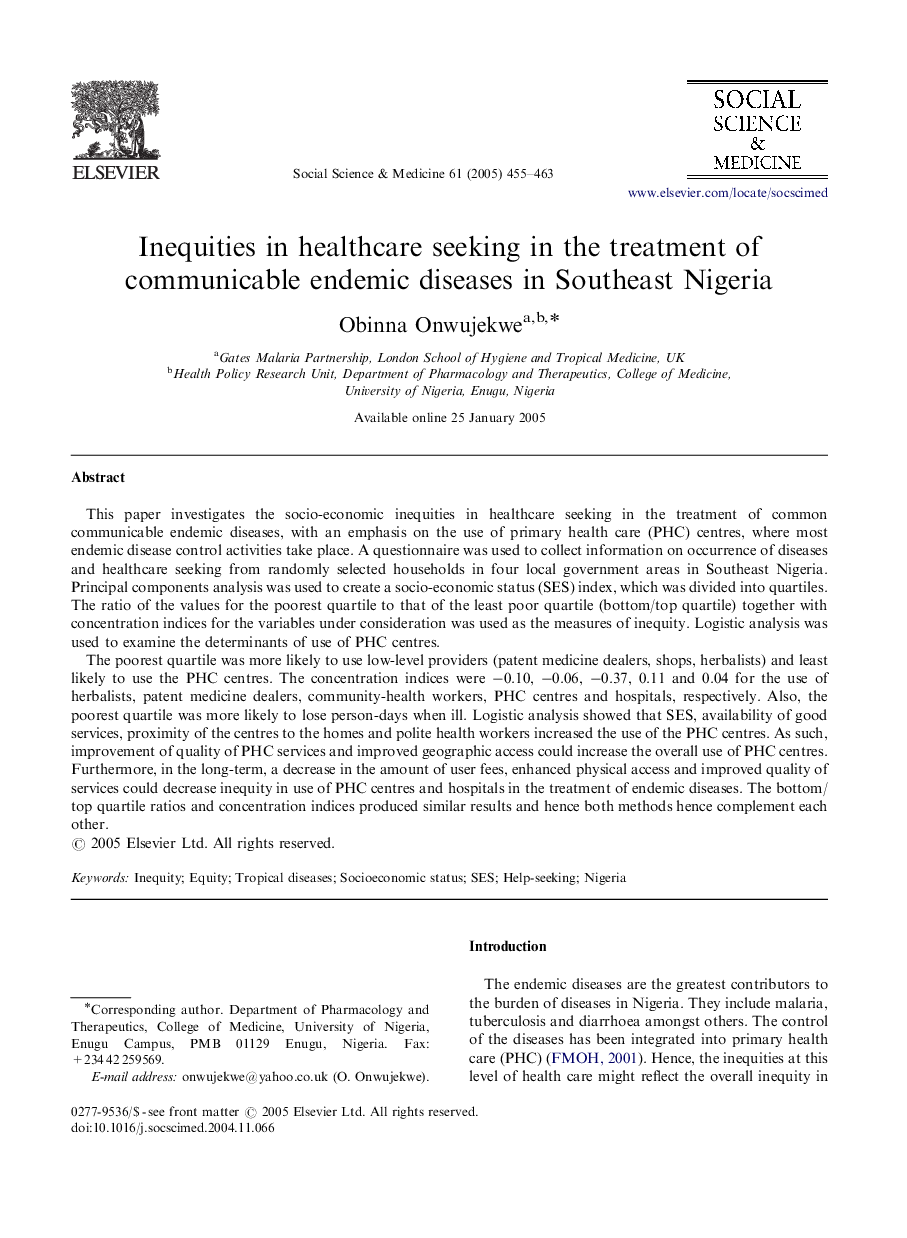| Article ID | Journal | Published Year | Pages | File Type |
|---|---|---|---|---|
| 10472364 | Social Science & Medicine | 2005 | 9 Pages |
Abstract
The poorest quartile was more likely to use low-level providers (patent medicine dealers, shops, herbalists) and least likely to use the PHC centres. The concentration indices were â0.10, â0.06, â0.37, 0.11 and 0.04 for the use of herbalists, patent medicine dealers, community-health workers, PHC centres and hospitals, respectively. Also, the poorest quartile was more likely to lose person-days when ill. Logistic analysis showed that SES, availability of good services, proximity of the centres to the homes and polite health workers increased the use of the PHC centres. As such, improvement of quality of PHC services and improved geographic access could increase the overall use of PHC centres. Furthermore, in the long-term, a decrease in the amount of user fees, enhanced physical access and improved quality of services could decrease inequity in use of PHC centres and hospitals in the treatment of endemic diseases. The bottom/top quartile ratios and concentration indices produced similar results and hence both methods hence complement each other.
Related Topics
Health Sciences
Medicine and Dentistry
Public Health and Health Policy
Authors
Obinna Onwujekwe,
